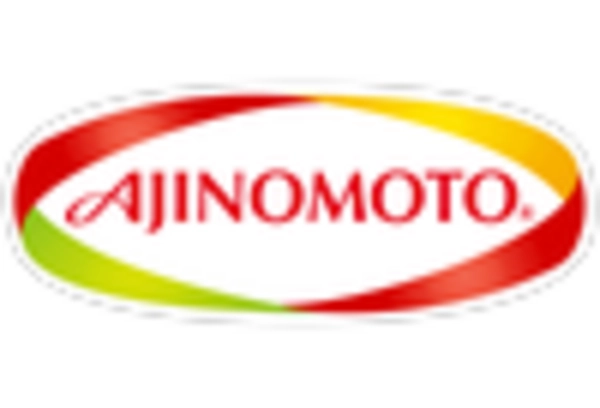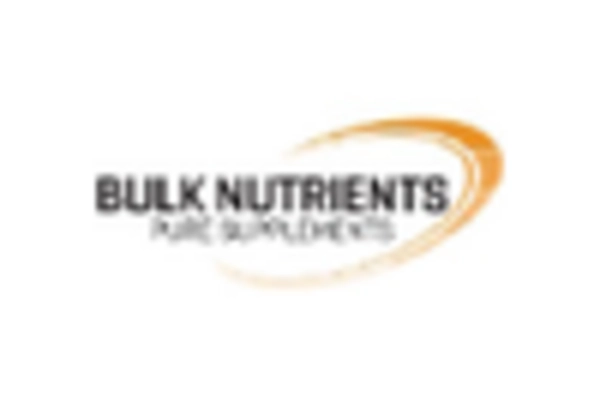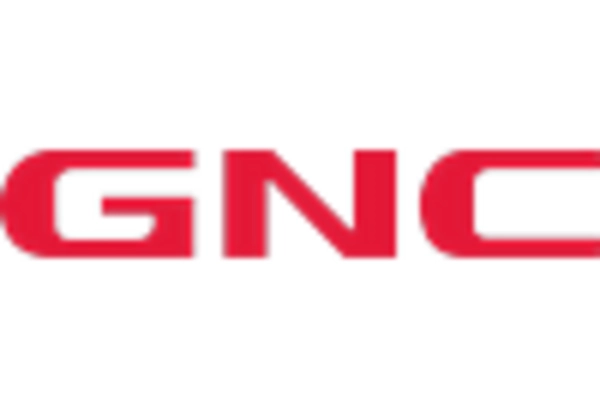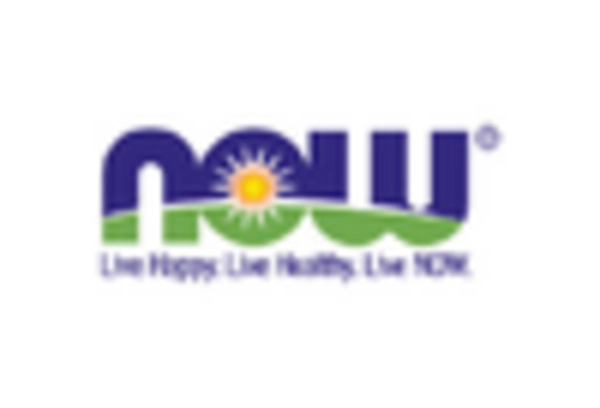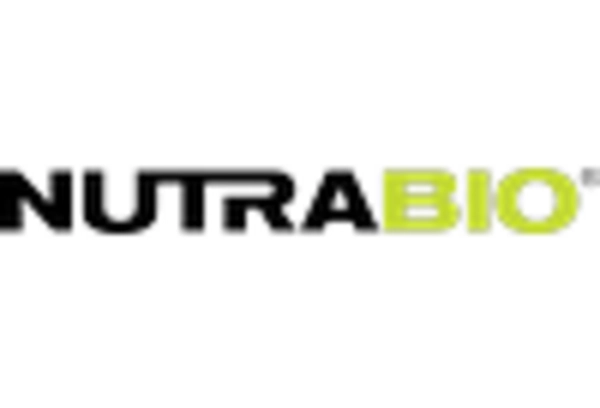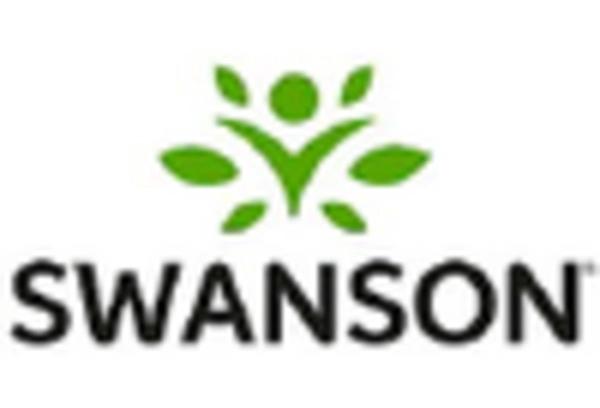Increased Awareness of Health Benefits
The glycine supplement market experiences a notable surge in consumer awareness regarding the health benefits associated with glycine. Research indicates that glycine plays a crucial role in promoting better sleep quality, enhancing cognitive function, and supporting muscle recovery. As individuals become more health-conscious, they actively seek supplements that can contribute to their overall well-being. This trend is reflected in the increasing sales of glycine supplements, which have shown a growth rate of approximately 15% annually in recent years. The rising interest in amino acids and their impact on health further propels the glycine supplement market, as consumers prioritize natural and effective solutions for their health needs.
Expansion of Health and Wellness Trends
The glycine supplement market is benefiting from the broader expansion of health and wellness trends across the United States. As consumers increasingly prioritize holistic health approaches, the demand for supplements that support physical and mental well-being continues to rise. Glycine supplements, known for their potential to aid in muscle recovery and improve sleep quality, align well with these health trends. Market data suggests that the health and wellness sector is projected to grow by 10% annually, with glycine supplements capturing a notable share of this growth. This alignment with consumer preferences for natural and effective health solutions positions the glycine supplement market favorably for sustained expansion.
Growing Interest in Personalized Nutrition
The glycine supplement market is significantly influenced by the growing trend of personalized nutrition. Consumers are increasingly seeking tailored dietary solutions that cater to their specific health requirements. Glycine, being a non-essential amino acid, is often incorporated into personalized supplement regimens aimed at enhancing individual health outcomes. This shift towards customized nutrition is supported by advancements in technology, allowing for better tracking of dietary intake and health metrics. As a result, the glycine supplement market is likely to witness a rise in demand for products that can be integrated into personalized health plans, potentially leading to a market growth of around 20% over the next few years.
Influence of Social Media and Online Communities
The glycine supplement market is significantly impacted by the influence of social media and online communities. Platforms such as Instagram and TikTok have become vital channels for health influencers and nutritionists to promote the benefits of glycine supplements. This digital marketing approach has led to increased visibility and awareness among consumers, particularly younger demographics who are more likely to engage with health content online. As a result, the glycine supplement market is witnessing a surge in sales driven by social media campaigns and user-generated content. The potential for viral trends surrounding health supplements could lead to a projected growth rate of 18% in the coming years, as more consumers turn to online resources for health information.
Rising Popularity of Fitness and Sports Nutrition
The glycine supplement market is experiencing growth driven by the rising popularity of fitness and sports nutrition. As more individuals engage in physical activities and seek to optimize their performance, the demand for supplements that support muscle recovery and enhance endurance is increasing. Glycine, recognized for its role in protein synthesis and muscle repair, is becoming a preferred choice among athletes and fitness enthusiasts. Market analysis indicates that the sports nutrition segment is expected to grow by approximately 12% annually, with glycine supplements playing a pivotal role in this expansion. This trend underscores the importance of glycine in the fitness community, further solidifying its position within the glycine supplement market.



